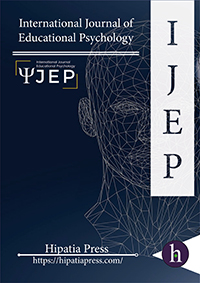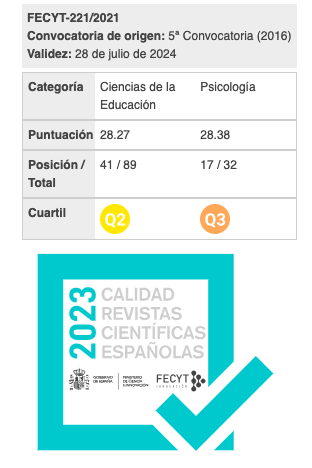Forgiveness or Striking Back? The Influence of Social Interaction on Adolescents' Conflict Coping Strategy
Keywords:
Downloads
Abstract
Based on social learning theory, this study aimed at providing a better understanding of the influence of social interaction on adolescents' conflict coping strategy. This study used the data from the Taiwan Educational Panel Survey (N=8717) to test the unique contribution of religious involvement, parent-child interaction, teacher-student interaction on adolescents' conflict coping strategy when they encountered an interpersonal offense in school. Findings showed that religious involvement, being physically hurt by father, being understood by father, and positive teacher-student interaction could increase the possibility of positive conflict coping strategy. And being verbally hurt by mother and negative teacher-student interaction would decrease the possibility of positive conflict coping strategy. Based on these results, implications for research and practice were discussed.
Downloads
References
Ahmed, E., & Braithwaite, V. (2006). Forgiveness, reconciliation, and shame: Three key variables in reducing school bullying. Journal of Social Issues, 62(2), 347-370. http://dx.doi.org/10.1111/j.1540-4560.2006.00454.x.
Google Scholar CrossrefBandura, A., & Walters, R. H. (1963). Social learning and personality development (Vol. 14). New York: Holt, Rinehart and Winston.
Google Scholar CrossrefBaumeister, R. F., Stillwell, A. M., & Heatherton, T. F. (1994). Guilt: an interpersonal approach. Psychological bulletin, 115(2), 243-267. http://dx.doi.org/10.1037/0033-2909.115.2.243.
Google Scholar CrossrefBirch, S. H., & Ladd, G. W. (1997). The teacher-child relationship and children's early school adjustment. Journal of school psychology, 35, 61-79. http://dx.doi.org/10.1016/S0022-4405(96)00029-5.
Google Scholar CrossrefBoon, S. D., & Sulsky, L. M. (1997). Attributions of blame and forgiveness in romantic relationships: A policy-capturing study. Journal of Social Behavior and Personality, 12(1), 19-44.
Google Scholar CrossrefChristensen, K. J., Padilla-Walker, L. M., Busby, D. M., Hardy, S. A., & Day, R. D. (2011). Relational and social-cognitive correlates of early adolescents’ forgiveness of parents. Journal of adolescence, 34(5), 903-913. http://dx.doi.org/10.1016/j.adolescence.2011.01.001.
Google Scholar CrossrefCrick, N. R., & Dodge, K. A. (1994). A review and reform of social information-processing mechanisms in children’s social adjustment. Psychological Bulletin, 115, 76–101. http://dx.doi.org/
Google Scholar CrossrefCrick, N. R., & Grotpeter, J. K. (1995). Relational aggression, gender, and social-psychological adjustment. Child Development, 66, 710–722. http://dx.doi.org/
Google Scholar CrossrefDavis, D. E., Worthington Jr, E. L., Hook, J. N., & Hill, P. C. (2013). Research on religion/spirituality and forgiveness: A meta-analytic review. Psychology of Religion and Spirituality, 5(4), 233-241. http://dx.doi.org/10.1037/a0033637.
Google Scholar CrossrefDay, R. D., & Padilla-Walker, L. M. (2009). Mother and father connectedness and involvement during early adolescence. Journal of Family Psychology, 23(6), 900-904. http://dx.doi.org/10.1037/a0016438.
Google Scholar CrossrefDenham, S. A., von Salisch, M., Olthof, T., Kochanoff, A., & Caverly, S. (2002). Emotions and peer relationships. In C. Hart & P. K. Smith (Eds.), Handbook of child social development (pp. 307–328). New York: Blackwell.
Google Scholar CrossrefDiBlasio, F. A., & Benda, B. B. (2008). Forgiveness Intervention with Married Couples: Two Empirical Analyses. Journal of Psychology & Christianity, 27(2), 150-158.
Google Scholar CrossrefDurkheim, E. (2012). Moral education. Courier Corporation.
Google Scholar CrossrefEnglehart, J. M. (2009). Teacher–student interaction. International handbook of research on teachers and teaching. Springer US.
Google Scholar CrossrefEnright, R. D. (1994). Piaget on the moral development of forgiveness: Identity or reciprocity? Human Development, 37, 63–80. http://dx.doi.org/10.1159/000278239.
Google Scholar CrossrefEnright, R. D., & Fitzgibbons, R. P. (2000). Helping clients forgive: An empirical guide for resolving anger and restoring hope. American Psychological Association.
Google Scholar CrossrefEnright, R. D., Freedman, S., & Rique, J. (1998). The psychology of interpersonal forgiveness. In R. D. Enright & J. North (Eds.). Exploring forgiveness, 46-62. Madison, WI: University of Wisconsin Press.
Google Scholar CrossrefEnright, R. D., Santos, M. J., & Al-Mabuk, R. (1989). The adolescent as forgiver. Journal of adolescence, 12(1), 95-110. http://dx.doi.org/10.1016/0140-1971(89)90092-4.
Google Scholar CrossrefErdley, C. A., & Asher, S. R. (1996). Children's social goals and self‐efficacy perceptions as influences on their responses to ambiguous provocation. Child development, 67(4), 1329-1344. http://dx.doi.org/10.2307/1131703.
Google Scholar CrossrefFincham, F.D., Paleari, G., & Regalia, C. (2002). Forgiveness in marriage: The role of relationship quality, attributions, and empathy. Personal Relationships, 9, 27-37. http://dx.doi.org/10.1111/1475-6811.00002.
Google Scholar CrossrefGalloway, C. M. (1976). Silent language in the classroom (No. 86). Phi Delta Kappa Educational Foundation.
Google Scholar CrossrefHastings, P., McShane, K., Parker, R., & Ladha, F. (2007). Ready to make nice: Parental socialization of young sons’ and daughters’ prosocial behaviors with peers. Journal of Genetic Psychology, 168, 177–200. http://dx.doi.org/10.3200/GNTP.168.2.177-200.
Google Scholar CrossrefHook, J. N., Worthington, E. L., Davis, D. E., Jennings, D. J., Gartner, A. L., & Hook, J. P. (2010). Empirically supported religious and spiritual therapies. Journal of clinical psychology, 66(1), 46-72. http://dx.doi.org/10.1002/jclp.20626.
Google Scholar CrossrefKahn, K. H., & Cangemi, J. P. (1979). Social learning theory: The role of imitation and modeling in learning socially desirable behavior. Education, 100(1), 41–46.
Google Scholar CrossrefKhamis, V. (2009). Classroom environment as a predictor of behaviour disorders among children with learning disabilities in the UAE. Educational Studies, 35, 27-36. http://dx.doi.org/10.1080/03055690802648044.
Google Scholar CrossrefMcCullough, M. E. (2001). Forgiveness: Who does it and how do they do it? Current Directions in Psychological Science, 10(6), 194-197. http://dx.doi.org/10.1111/1467-8721.00147.
Google Scholar CrossrefMcCullough, M. E., Rachal, K. C., Sandage, S.J., Worthington, E. L., Brown, S.W., & Hight, T.L. (1998). Interpersonal forgiving in close relationships: II. Theoretical elaboration and measurement. Journal of Personality and Social Psychology, 75, 1586-1603. http://doi.org/10.1037//0022-3514.75.6.1586.
Google Scholar CrossrefMcCullough, M. E., & Worthington Jr, E. L. (1999). Religion and the forgiving personality. Journal of personality, 67(6), 1141-1164. http://doi.org/10.1111/1467-6494.00085.
Google Scholar CrossrefMcCullough, M. E., Worthington, E. L. Jr., & Rachal, K. C. (1997). Interpersonal forgiving in close relationships. Journal of Personality and Social Psychology, 73, 321–336. http://doi.org/10.1037/0022-3514.73.2.321.
Google Scholar CrossrefMincic, M. S., Wyatt, T., Kalb, S., Shapiro, S., Bassett, H., & Denham, S. A. (2004, August). Perceptions of parent styles’ effects on children’s forgiveness. Poster presented at the annual meeting of the American Psychological Association, Honolulu, HI.
Google Scholar CrossrefNoddings, N. (2002). Educating moral people: A caring alternative to character education. Teachers College Press.
Google Scholar CrossrefNorth, J. (1987). Wrongdoing and forgiveness. Philosophy, 62(242), 499-508.
Google Scholar CrossrefPark, Y. O., & Enright, R. D. (1997). The development of forgiveness in the context of adolescent friendship conflict in Korea. Journal of Adolescence, 20(4), 393-402. http://doi.org/10.1006/jado.1997.0095.
Google Scholar CrossrefPaloutzian, R. F., & Park, C. L. (Eds.). (2014). Handbook of the psychology of religion and spirituality. Guilford Publications.
Google Scholar CrossrefPfefferbaum, B., & Wood, P. B. (1994). Self-report study of impulsive and delinquent behavior in college students. Journal of Adolescent Health, 15(4), 295-302. http://doi.org/10.1016/1054-139X(94)90602-5.
Google Scholar CrossrefPiaget,J. (1965). The moral judgment of the child. New York: Free Press.
Google Scholar CrossrefPianta, R. C. (1999). Enhancing relationships between children and teachers. Washington, DC, US: American Psychological Association.
Google Scholar CrossrefPianta, R. C., & Steinberg, M. (1992). Teacher‐child relationships and the process of adjusting to school. New Directions for Child and Adolescent Development, 57, 61-80. http://doi.org/10.1002/cd.23219925706.
Google Scholar CrossrefRose, A. J., & Asher, S. R. (1999). Children's goals and strategies in response to conflicts within a friendship. Developmental psychology, 35(1), 69-79. http://doi.org/10.1037//0012-1649.35.1.69.
Google Scholar CrossrefRusbult, C. E., Verette, J., Whitney, G. A., Slovik, L. F., & Lipkus, I. (1991). Accommodation processes in close relationships: Theory and preliminary empirical evidence. Journal of Personality and Social Psychology, 60(1), 53-78. http://doi.org/10.1037//0022-3514.60.1.53.
Google Scholar CrossrefToussaint, L., & Jorgensen, K. M. (2008). Inter-Parental Conflict, Parent-Child Relationship Quality, and Adjustment in Christian Adolescents: Forgiveness as a Mediating Variable. Journal of Psychology & Christianity, 27(4), 337-346.
Google Scholar CrossrefWade, N. G., & Worthington Jr, E. L. (2003). Overcoming interpersonal offenses: Is forgiveness the only way to deal with unforgiveness? Journal of Counseling and Development: JCD, 81(3), 343-353. http://doi.org/10.1002/j.1556-6678.2003.tb00261.x.
Google Scholar CrossrefWilliams, S. K., & Kelly, F. D. (2005). Relationships among involvement, attachment, and behavioral problems in adolescence: Examining father’s influence. Journal of Early Adolescence, 25, 168–196. http://doi.org/10.1177/0272431604274178.
Google Scholar CrossrefWindmiller, M., Lambert, N. M., & Turiel, E. (1980). Moral development and socialization. Allyn & Bacon.
Google Scholar CrossrefWorthington Jr, E. L. (2006). Forgiveness and reconciliation: Theory and application. Routledge.
Google Scholar CrossrefWorthington Jr, E. L. (2007). Handbook of forgiveness. Routledge.
Google Scholar CrossrefWorthington Jr, E. L., Berry, J. W., & Parrott III, L. (2001). Unforgiveness, forgiveness, religion, and health. In T. G. Plante & A. C. Sherman (Eds.), Faith and health: Psychological perspectives, 107-138. New York: Guilford Press.
Google Scholar CrossrefWorthington Jr, E. L., Jennings, I. I., David, J., & DiBlasio, F. A. (2010). Interventions to promote forgiveness in couple and family context: conceptualization, review, and analysis. Journal of Psychology & Theology, 38(4), 231-245.
Google Scholar CrossrefWorthington, E. L., & Scherer, M. (2004). Forgiveness is an emotion-focused coping strategy that can reduce health risks and promote health resilience: Theory, review, and hypotheses. Psychology & Health, 19(3), 385-405. http://doi.org/10.1080/0887044042000196674.
Google Scholar CrossrefWorthington Jr, E. L., & Wade, N. G. (1999). The psychology of unforgiveness and forgiveness and implications for clinical practice. Journal of Social and clinical psychology, 18(4), 385-418. http://doi.org/10.1521/jscp.1999.18.4.385.
Google Scholar CrossrefWorthington Jr, E. L., Witvliet, C. V. O., Pietrini, P., & Miller, A. J. (2007). Forgiveness, health, and well-being: A review of evidence for emotional versus decisional forgiveness, dispositional forgivingness, and reduced unforgiveness. Journal of behavioral medicine, 30(4), 291-302. http://doi.org/10.1007/s10865-007-9105-8.
Google Scholar CrossrefDownloads
Published
Almetric
Dimensions
How to Cite
Issue
Section
License
All articles are published under Creative Commons copyright (CC BY). Authors hold the copyright and retain publishing rights without restrictions, but authors allow anyone to download, reuse, reprint, modify, distribute, and/or copy articles as the original source is cited.
















